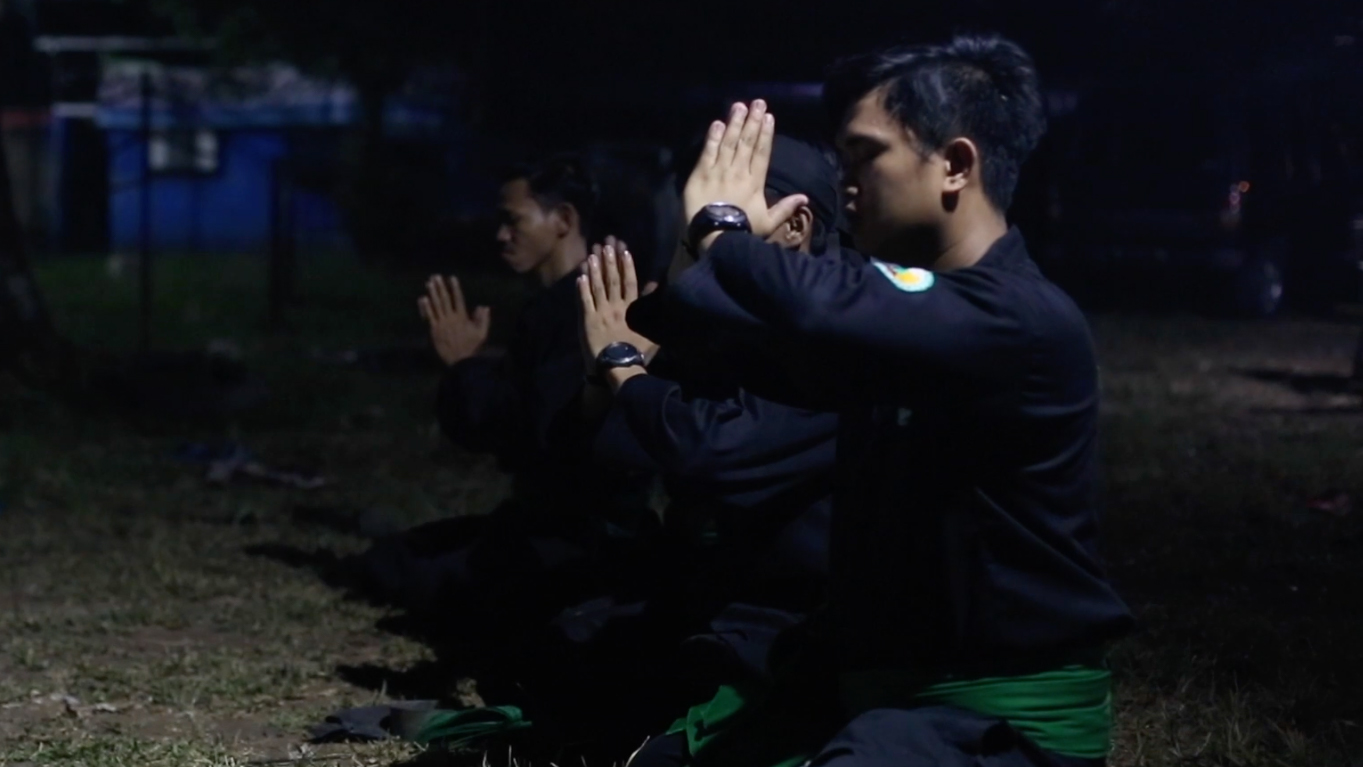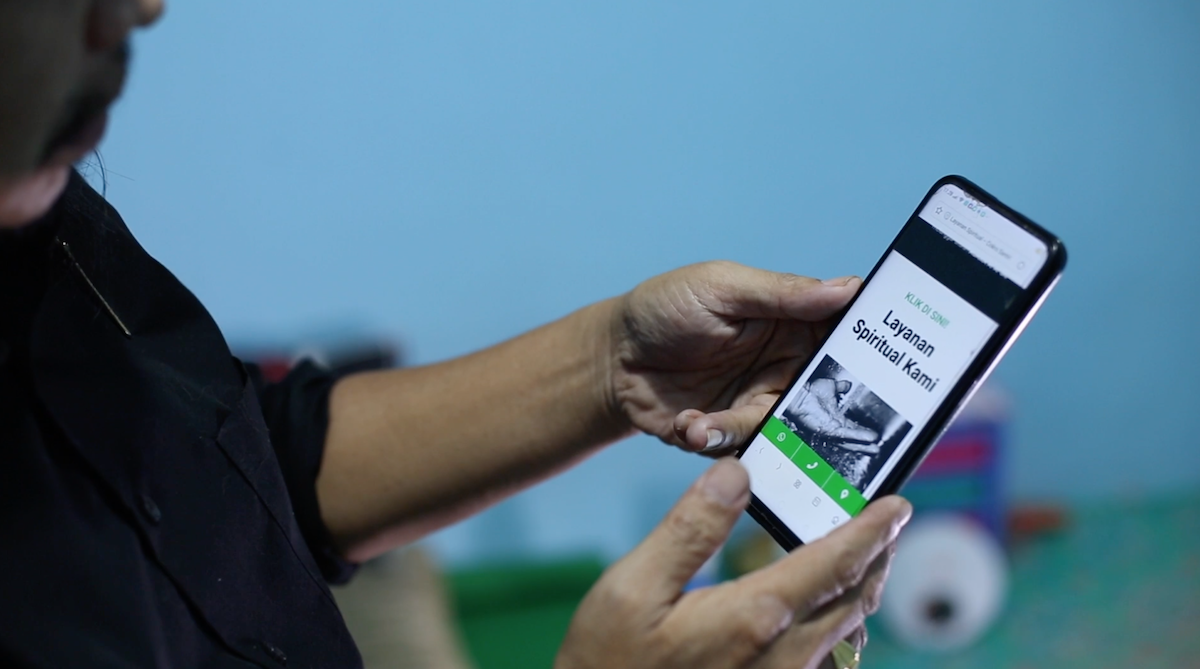02:46

In his dimly lit living room, Cokro Pamungkas is glued to his phone while reciting a prayer. The earthy smell of incense fills the air as he glances at his client's photo and keeps himself focused on her eyes through the screen. This is his form of remote healing.
Cokro calls himself the best spiritual healer in Indonesia. He's been known to soothe heartbreaks, cure illnesses and help his clients attract abundance. For nearly 30 years, those services were focused on his small local community. The grieving mother, the couple looking to mend their marriage and the newly established businessman would knock on his door at any time of day seeking for emotional and spiritual healing.
Back in March, all of this changed. As Indonesia was forced into strict coronavirus lockdowns, many people chose to stay home and avoided the public at all costs. Cokro needed another way to keep his business going. That prompted him to get creative with his marketing strategies.
"Now, I use Google Ads to reach my audience. Since I have done this, 60 percent of my clients are mostly the millennial generation between the age of 20 to 28 years old. I mostly conduct my rituals through text message and this has skyrocketed my business. Since COVID-19, I can say my clientele has more than doubled," said Cokro.

Cokro Pamungk shows an online order for his services beyond his small local community. /CGTN
Cokro Pamungk shows an online order for his services beyond his small local community. /CGTN
Most of his clients these days are simply looking for blessings amid the pandemic, especially those that have lost their jobs during this uncertain time.
"I can tell some of them actually have no issues at all. They just need help in making sense of their emotions and feelings. I tell them that they don't need anything to be spiritual. Spirituality is in everything. Spirituality is just energy. All you need is intention and how to direct your energy. When they come to me, I can help to redirect their focus and energy," said Cokro.
Just like Cokro, many healers are now choosing to be much more accessible. They use e-commerce platforms to reach their younger audiences. Those seeking for spiritual help can book services and buy products on many mainstream websites.
But it's easy to get caught up in the mysticism. It's particularly difficult for the government to regulate these spiritual practices, to filter out the bad from the good. Many Indonesian healers are only in it for the money without possessing the energy to actually heal their clients. Cokro says this disrupts the competition in the business.
"Some people use my face and put their number in posters claiming that they have supernatural powers to heal every sickness and help their clients gain riches. That is impossible. Nobody can do that. That's not the work I do. I am still very much rooted in my Islamic religion, so I practice from that place. I can do both cultural and religious healing," said Cokro.
As one of the largest Muslim-majority nation, Indonesia takes religion very seriously. Anything that goes against the Islamic teachings is generally considered haram, or sinful.
For Arsul Sani, this includes certain types of spiritual healing. As a commissioner in the People's Representatives of Indonesia, he holds the power to create laws. Back in 2019, he proposed to outlaw some of the practices he consider to be "dark magic."
"What we outlaw in the supernatural bill is those who publicly announce and market themselves as practitioners of dark magic with supernatural powers. They can be criminalized or charged with fraud under our Criminal Code bill. But once the act has been done, it is hard to charge them with any law because how could we prove it? It is almost impossible to regulate," said Arsul.

Arsul Sani proposes to outlaw dark supernatural healing because he considers it a violation to Indonesia's Islamic practices. /CGTN
Arsul Sani proposes to outlaw dark supernatural healing because he considers it a violation to Indonesia's Islamic practices. /CGTN
The emergence of these occult practices is enough for the government to try and criminalize them. Cokro believes this is a form of repressing freedom because spirituality in Indonesia can be traced back to colonial times; it is almost embedded in the country's culture. But since the massive rise of religion, these practices are now seen as a form of rebellion.
"We know that not all practitioners are into dark magic. There are some who just offer forecasting the future services. Obviously, that will not be deemed as a crime. But we had to make a bill about marketing dark magic because we can see this will happen in the near future. We are anticipating this already. We must realize that those dark supernatural activities are still widely practiced in our society," said Arsul.
Arsul says the key is for the government to find a way to regulate these practices both online and offline by bringing various ministries to work together, including the Religious Affairs Ministry and the Communications and Information Ministry.
For many people, spirituality is just a new way to seek God. Indonesia's rich history is deeply steeped in magic, and these supernatural practices will always have a place in the country's modern society.